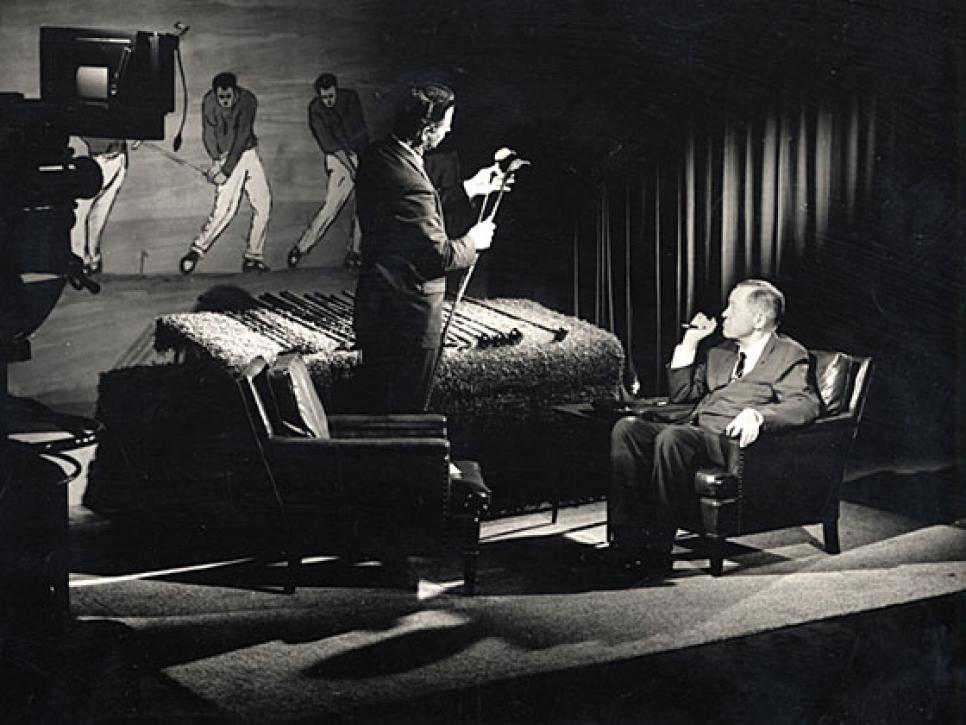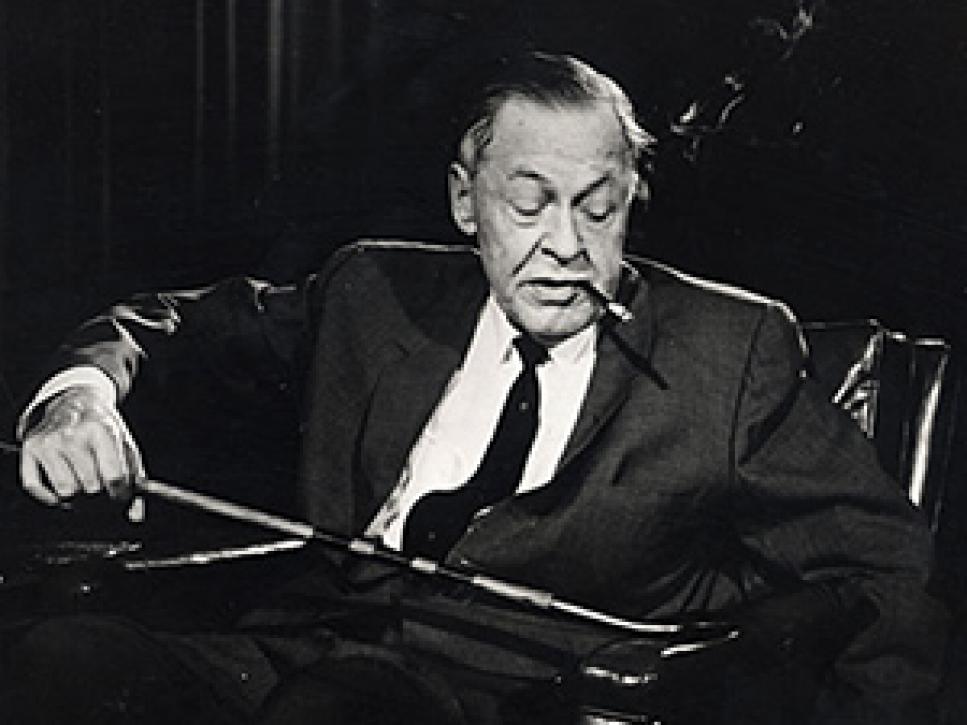News
Fifty years ago, Bobby Jones talked about equipment making the game easier and too many golf tournaments on TV
It's been known for quite awhile that Robert Tyre Jones Jr. preferred being called Bob over the public moniker of Bobby. But "Bobby Jones" fit the man's legendary career on and off the golf course as a media hook with more pop than just plain Bob Jones. Imagine Bobby Jones, who was a media juggernaut in print, news reels and golf-instruction movies during and just after his prime, also being a television personality with his own "The Bobby Jones Golf Show."
Six years before he died, Jones was featured in "a rare television appearance" that gave a glimpse of what Bobby Jones as a TV star would have been like. This Sunday will be the 50th anniversary of "An interview with Mister Golf," a TV show Jones did with Atlanta's WAGA-TV 5 and its acclaimed sports director, Ed Thilenius. The show had been recorded on Jones' 63rd birthday (March 17, 1965) and played back at 9 p.m. on April 5, a Monday evening. (WAGA was a CBS station at the time and is now Fox.) Show producers even brought out a birthday cake for Jones.

Jones commented on a wide range of topics that were of major importance at the time, including on the eve of the Masters whether 1964 winner Arnold Palmer could be the first person to win the tournament two years in a row. "Of course, Arnold would be one of the prime favorites in any tournament he entered," Jones said. "That's the only way you can play it." (Palmer ended up tying for second with Gary Player, nine shots behind Jack Nicklaus, who set a record at 17 under and "played a game with which I am not familiar," Jones would infamously praise.)
A major commentary was Jones describing his design philosophy regarding Augusta National, touching on, among other things, the intentional choice of making par 5s that could be reached in two shots. "That was one of the conditions I laid down for our architect, Dr. [Alister] Mackenzie. … The purpose of a golf course is to test the player's ability to play shots of all types. Also, to give him the pleasure and opportunity of playing all these shots. So, if you give him a short par 4, he gets an opportunity to play the short approach after a drive. Then, you give him a longer par 4 and he plays the long approach. And on our 5s he can play a wood.
"On some of our par 4s, under certain conditions, he has to play a wood second. So we try to give him a wide test. Now, the standard golf course usually has four par 3s. That's so that every player has to play the approach to the green from the same place—not independently on what his driving ability might be. So that's what you try to do with a golf course. You try to make it a broad test and a broad opportunity for play."

On whether golf had outgrown the era of one-man domination: "That all depends on what you mean by one-man domination. If by that you mean that there will come along a superman who can't be beaten, then I would say that that would never happen because golf just isn't that kind of game.
On the history of Calamity Jane, his famous wooden-shafted putter: "I think that the head was forged about 1890, but I'll have to admit that it's had more than one shaft."
On golfers being more swing-smart: "I ride by a public golf course twice a day, and I am amazed at the good swings that I see, both with kids and older people. Most of them know what they're doing."
On golf being easier and more fun to play: "I'm sure it's an easier game because of better equipment and better courses—you get fewer bad lies—and then people are swinging better. And, of course, it's got to be more fun to play down the fairway than in the rough."
On what he considers the biggest advancements in golf from 30 years earlier: "Improvements in equipment, in the ball, in golf courses and greenskeeping methods, in technique and more widespread understanding of the proper method of hitting a golf ball."
On a recent concern voiced by Palmer about the number of tournaments being held and the possible overexposure of golf on TV: "[I understand] why Palmer said that there are too many tournaments for all the top fellows to play in all of them because to play in a golf tournament every week is beyond human endurance and expectation. The mental and physical strain is so great. So I can understand very well what he meant by that. But that wouldn't mean that we shouldn't have a tournament if people want to put one on. So, [as] far as the overexposure of golf on television is concerned, it may affect the entertainment value of the golf programs but it's one of the main factors for improving the general level of play because it gives the ordinary players the opportunity to see good players and to imitate their methods. That's the reason, or one of the big reasons, you see so many good players on club and public courses."
Jones' sound, simple advice was never more evident than in what he thought was the most important advice to the amateur golfer on how to improve: "I would tell him to play a lot, and when he is playing, just play. Try to get the ball in the hole. If he wants to take a lesson or practice, go on the practice tee to do it and not try to practice on the golf course."